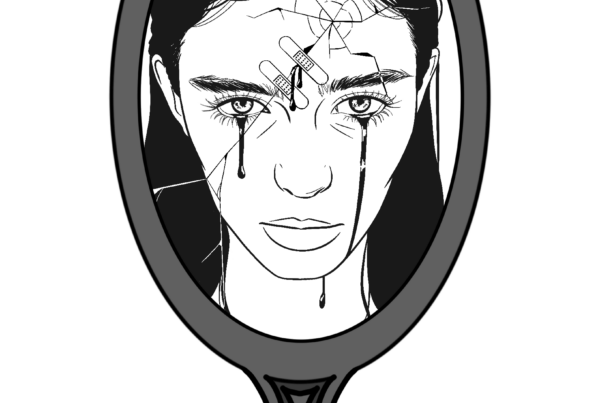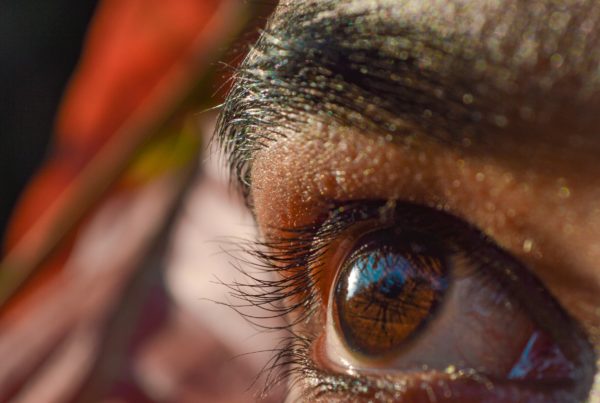

Sometimes it is strange how much the feeling of time changes depending on our circumstances. Most people feel like their weekends go by a lot faster than two working days, or a week on vacation seems to be over in the blink of an eye, while exam week drags on and on and never seems to end. The saying “time flies when you’re having fun” suggests that we feel time goes by quicker when we are happy, however, psychological theory suggests otherwise. The “oddball effect” argues that time supposedly lengthens in our minds when we enjoy ourselves and compresses during perceived monotony and stress. In an experiment on the oddball effect, participants watched a flashing image of a shoe multiple times, followed by a picture of a flower just once. Most participants believed that the flower had been displayed for a longer duration of time. The novelty of the flower image, in contrast to the repeated shoe image, gave them something new to process and induced the feeling that time had expanded while they were viewing it.
The effect also explains why childhood seemed to last forever when we were young whereas we sometimes experience our adult life as going by incredibly quickly. Our brains may have a stretched out perception of time when we were children because we perceived our lives as pretty exciting: we were learning new things all the time and have experienced a lot of personal growth. During adulthood, on the other hand, we do not encounter many novel experiences and sometimes it just feels like one big stress ball of tedium, which might be why we sometimes experience it as passing by so quickly. Research also found that new experiences seem to be longer in the memory than familiar ones, which adds to the effect of feeling like time feels like it is going faster as you get older – because more stuff is familiar to you. In addition, it has been shown that the oddball effect can be shown not only for visual stimuli but also for auditory ones.
As in many fields of psychological research, further experiments are needed to explore this phenomenon. But if we were to follow the thinking behind the oddball effect, it seems like the only way to stretch out our lives and enjoy is to quit the tasks we already know (as much as possible) and pick up new things to do and explore.
Illustration by Anushka Sabhanam

Illustration by Anushka Sabhanam
Sometimes it is strange how much the feeling of time changes depending on our circumstances. Most people feel like their weekends go by a lot faster than two working days, or a week on vacation seems to be over in the blink of an eye, while exam week drags on and on and never seems to end. The saying “time flies when you’re having fun” suggests that we feel time goes by quicker when we are happy, however, psychological theory suggests otherwise. The “oddball effect” argues that time supposedly lengthens in our minds when we enjoy ourselves and compresses during perceived monotony and stress. In an experiment on the oddball effect, participants watched a flashing image of a shoe multiple times, followed by a picture of a flower just once. Most participants believed that the flower had been displayed for a longer duration of time. The novelty of the flower image, in contrast to the repeated shoe image, gave them something new to process and induced the feeling that time had expanded while they were viewing it.
The effect also explains why childhood seemed to last forever when we were young whereas we sometimes experience our adult life as going by incredibly quickly. Our brains may have a stretched out perception of time when we were children because we perceived our lives as pretty exciting: we were learning new things all the time and have experienced a lot of personal growth. During adulthood, on the other hand, we do not encounter many novel experiences and sometimes it just feels like one big stress ball of tedium, which might be why we sometimes experience it as passing by so quickly. Research also found that new experiences seem to be longer in the memory than familiar ones, which adds to the effect of feeling like time feels like it is going faster as you get older – because more stuff is familiar to you. In addition, it has been shown that the oddball effect can be shown not only for visual stimuli but also for auditory ones.
As in many fields of psychological research, further experiments are needed to explore this phenomenon. But if we were to follow the thinking behind the oddball effect, it seems like the only way to stretch out our lives and enjoy is to quit the tasks we already know (as much as possible) and pick up new things to do and explore.



